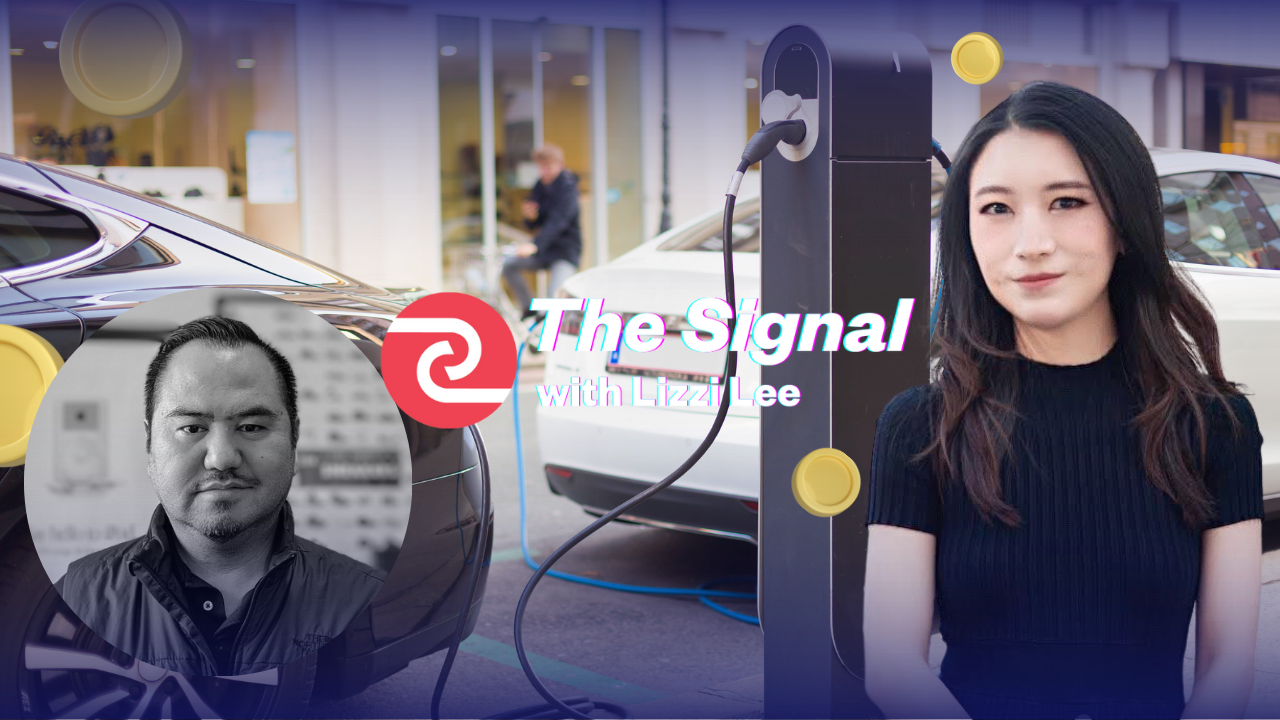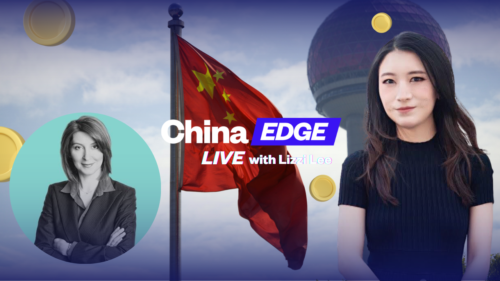China’s EV-making machine | Live with Lizzi Lee
Tu Le, managing director of Sino Adult Insights, talks about the rise of the Chinese EV industry, BYD's glowing success, and EV trends to watch out for in 2023.

Below is a transcript of the video:
Lizzi Lee: Hello and welcome to this episode of Live with Lizzi Lee, powered by The China Project. I’m your host, Lizzi. Joining me today is Mr. Tu Le, managing director of Sino Adult Insights. Thank you so much for joining me.
Tu Le: Thanks for having me, Lizzi.
Lizzi: So, Mr. Le, China has had a multi-year run of huge growth in the EV sector. What do you think are the reasons behind China’s huge EV push?
Tu: I think it’s their focus on making these battery chips a priority, a national champion. Manufacturing is a huge part of the economy, and so you need to kind of play into that, and it’s really, really paid off. They’ve spent almost 14 years focusing on building from zero, and now we see that by 2022, they’re 6.7 million EVs sold in China, which is about 25% of all cars sold. And it doubled the sales of the U.S. and EU combined. So that focus early on is really, really paying off right now.
Lizzi: And what do we know about this dominant domestic seller, BYD? There’s a lot of news buzz around this company. What do you think differentiates BYD from its competitors, say, Tesla, XPeng and Great Wall?
Tu: They are a machine! And they’ve been around quite some time. And early on, they were more of a high-tech supplier, and Apple was one of their customers. And so when you have a customer early on as finicky and as tough as Apple, you learn a lot, and you get a lot of thick skin, and you also begin to create management that has a lot of experience doing a lot of different things. And let’s not forget that they originally started as a battery company. And so having that experience, foundational experience, in battery cell R&D and manufacturing fabrication and then chip fabrication as well, really, really sets them apart from everyone else. And as someone who moved to China in 2009. I got into the early BYD vehicles and I was not impressed at all.
As someone who grew up in Detroit, by the way, I knew what a quality vehicle looked like, felt like, drove like. And BYD would not do that. And throughout the course of my time in China, you saw little improvements, little improvements, little improvements… And so they just became the little train that could and they’re going to be the global leader very very soon.
Lizzi: Speaking of geopolitics, it’s hard to ignore it altogether. There’s a lot of momentum in a global EV race between the United States and China. How do you expect geopolitical tensions to affect this generation of China players?
Tu: I think it’s also really hard to ignore economic growth as well. And the U.S. is the second largest market for passenger vehicles in the world. And the competition in China is such that I believe that “China EV Inc” — what I collectively call the Chinese EV makers in China — they would rather export a little bit instead of trying to compete directly with all of the competitors in China. So I think despite the political challenges and the diplomacy issue between China and the U.S., we’ll start to see by about 2025, at least the handful of Chinese medium makers exporting vehicles to the U.S. market. Now, that horse has already kind of left the barn because GM and Ford are two companies that built vehicles in China that shipped to the United States. And currently, there’s a 27.5% tariff that was put in place by the Trump administration in 2018. And GM Polestar eats much of that tariff in order to keep their vehicles affordable in the U.S. So the path there has already been created. Now it’s just understanding the market, and to your point, how we’re going to play this from a political standpoint. But we’re already seeing announcements by “The China Battery Inc” — what I collectively call the battery cell manufacturing in China — for investment, a major investment, billion dollar investment in the United States just in the last eight months.
Lizzi: Right. So speaking of this upcoming year, you know, there’s a lot of pent-up demand in China from past years of lockdowns. And there’s a lot of excitement surrounding Chinese events this year. What do you think are some of the top trends in the industry to watch out for in this upcoming year?
Tu: I think there’s downward pricing pressure just because of the economy in multiple regions being a bit delicate. But I also think that in 2023 now that the Chinese economy is completely back in the race, they don’t have any COVID issues or anything like that to deal with, we’ll likely see… If the Chinese central government sees softness in the economy, they’re likely to try to boost EV sales through subsidies or some sort of incentive program. So they’ve effectively got rid of at the end of 2022 most of the subsidies for the purchase of electric vehicles. And I think they’re trying to let the market decide who the winners are. And we saw at the beginning of this year that Tesla reduced their pricing substantially around the world.
So it’s exactly happening as the Chinese government would want it. Competition is stirring demand. Now, it’s also going to depend on how fast the Chinese economy and its central government can convince Chinese consumers to open their wallets. Because I think right now Chinese consumers are more focused on spending money to go travel than they are about buying cars. But historically, the Q1 and parts of Q2 for Chinese car sales have been very slow. So I wouldn’t see any major movement until after March or April.
Lizzi: What’s your top piece of advice for investors who are interested in the Chinese EV market?
Tu: So we are now moving from unknown territory into more traditional automotive marketing sales and differentiation by branding, by product features. And so what we should see is a bit more of the traditional levers for supply demand. But what’s crazy about the China market is that there’s always an announcement by some EV maker, and in the United States and in Europe that normally doesn’t happen. So a price cut happens, people will follow, and then there’ll be some silence as everybody settles in and kind of understands and fields new pricing across the board.
But in China, someone will always go lower. In other parts, there are going to be some major losers in the market, probably at least a handful of Chinese TV makers struggling to compete in 2023, maybe one or two of them actually leaving the market because of these struggles.
And I still see Tesla playing defense in China and then playing offense in the U.S. and Europe. But I also see a company like NIO who in the last eight months of 2022 launched multiple vehicles, multiple products. And so it should be a pretty good year for them because many of their products are newer. And so anything that’s older than, let’s say 14, 18 months, 20 months in the China market is probably going to see this demand because it’s always going to be a price cut. There’s always going to be new products and there’s always going to be new brands that are launching.



